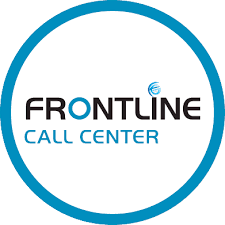IRS Doubles Down On Substantiation of Health and Dependent Care Expenses
The IRS recently cautioned employers that the tax-free status of all benefits provided under their Internal Revenue Code (IRC) Section 125 cafeteria plan could be lost if employees are allowed to self-certify or use shortcut methods to substantiate reimbursable expenses.
Failure of the substantiation requirements for any plan benefit causes the amount of all benefits elected by employees under the Section 125 plan to be includible in every employee’s taxable wage income reported in Boxes 1, 3 and 5 of Form W-2 and subject to income and employment tax withholding. Plus, the employer must pay its share of Social Security and Medicare taxes on such amounts. The primary cafeteria plan benefits that require substantiation are health insurance premiums, health flexible spending accounts (FSAs) and dependent care (FSAs). Failures in any of these benefits can cause taxation of all.
In Chief Counsel Memorandum (CCM) 202317020 (March 29, 2023), the IRS addressed five problematic cafeteria plan administrative practices:
The IRS said that the cafeteria plan rules require independent third-party verification of claims. All amounts paid under a plan that allows self-substantiation must be included in taxable wage income.
Insight: Even though the IRS allows self-certification in some contexts (for example, participants can self-certify for hardship and other withdrawals from tax-qualified retirement plans and taxpayers can self-certify why they had good reason for missing the 60-day rollover window), the IRS has held firm that self-certification is not allowed for cafeteria plans.
The CCM relies heavily on the IRS’s 2007 proposed cafeteria plan rules, which have not yet been finalized. Prop. Regs. §1.125-6(b)(3) states that all expenses must be substantiated by information from a third party that is independent of the employee.
Using sampling techniques whereby only selected employees substantiate certain expenses
Instead, the IRS noted that all expenses must be documented with independent third-party proof. Sampling techniques do not satisfy the cafeteria plan substantiation rules.
Insight: Prop. Regs. §1.125-6(b)(2) provides that substantiating only a percentage of claims or substantiating only claims above a certain dollar amount fails to comply with IRC Section 125.
Requiring documentation only for claims over a stated de minimis amount
Proof is needed for all claims, regardless of the amount. Even though the IRS does not require receipts for amounts under $75 for business expense reimbursements under the accountable plan rules or for de minimis fringe benefits when accounting for the benefits is unreasonable (such as snacks in the break room or occasional personal use of the office copier or telephone), those rules do not apply to cafeteria plans. Many health FSAs use debit cards, and charges processed by health care merchants are deemed to be automatically substantiated. But the plan would violate the cafeteria plan rules if it does not require debit card claims below a certain dollar threshold to be substantiated or automatically substantiated.
Insight: For example, charges incurred at a pharmacy could be for medical expenses but could also include non-medical expenses such as candy bars, laundry detergent, greeting cards, etc. Employees may use their health FSA debit card for non-medical purchases at a pharmacy at the same time that the employee picked up a prescription, over-the-counter medication or menstrual products (which are all eligible for tax-free reimbursement under the health FSA). If the employer does not require substantiation of amounts below a certain dollar limit, the employer has no way of knowing if the expenses were eligible for tax-free treatment.
Not substantiating (or auto-substantiating) charges to debit cards from certain preferred health providers
The cafeteria plan rules would be violated in this case, because substantiation (or auto-substantiation) is required for all claims, even if the doctor, dentist, hospital or other health provider is well-known to the employer.
Insight: Even though the proposed regulations are 16 years old, the preamble states that the rules can be relied on until the final regulations are issued. Some advisors and promoters hang on the words “can be relied on” and emphasize that there is no requirement to follow unfavorable regulations in their proposed form. Still, the IRS, by following the proposed regulations in the CCM, is giving taxpayers fair warning that it does not agree with many of the shortcuts currently being used. Anyone approached by a plan that utilizes IRC 125 pretax elections and then quickly restores the same amount to the employee’s paycheck as a tax-free reimbursement (also known as a payroll tax reduction plan or alleged “wellness” plan) should ask the promoter how the IRC 125 substantiation requirements are satisfied in light of the CCM.
Reimbursing dependent care expenses before the expenses are incurred
Employees cannot certify at the beginning of the year that their child is enrolled in a day care center at a fixed monthly cost for the entire year and collect tax-free reimbursement up front for the full year. Dependent care expenses are incurred when the care is provided and not when the employee is formally billed or charged for (or pays for) the dependent care.
Insight: Prop. Regs. §1.125-6(a)(4) provides that dependent care expenses cannot be reimbursed before the expenses are incurred. Expenses are incurred when the care is provided, not when the employee is billed for (or pays for) the dependent care. So even if the employee pays in advance for a full year of day care (which some providers require to hold the child’s place), the expenses cannot be reimbursed until the care has been provided.
The CCM reminds employers that, like most tax-preferred employee benefit plans, cafeteria plans must be “qualified” in both form (i.e., the plan document must include required language) and in operation. The CCM illustrates how an employer with a legally compliant cafeteria plan document can still violate the cafeteria plan rules in operation.
Insight: Remember that self-employed individuals (including partners, more than 2% S-corporation shareholders and owners of LLC profits or capital interests) are not allowed to participate in an IRC Section 125 cafeteria plan. Allowing such individuals to participate in the cafeteria plan would disqualify the entire plan, which would cause all benefits for all participants to be treated as taxable wage income, subject to income and employment taxes. Although the IRS generally does not enforce that harsh result, typically, ineligible individuals would be taxed on what they thought were “tax-free” cafeteria plan benefits.
Insight: Since the proposed regulations do not define “plan,” a mitigation strategy might include having separate Section 125 plans for each component benefit plan; for example, the health FSA would be in one Section 125 plan and the dependent care FSA would be in another Section 125 plan.
Sponsors of IRC Section 125 cafeteria plans or payroll tax reduction plans should work with their third-party plan administrators to review current cafeteria plan substantiation practices and procedures to determine if any changes or corrective actions are needed.
Written by Joan Vines and Norma Sharara. Copyright © 2023 BDO USA, LLP. All rights reserved. www.bdo.com



